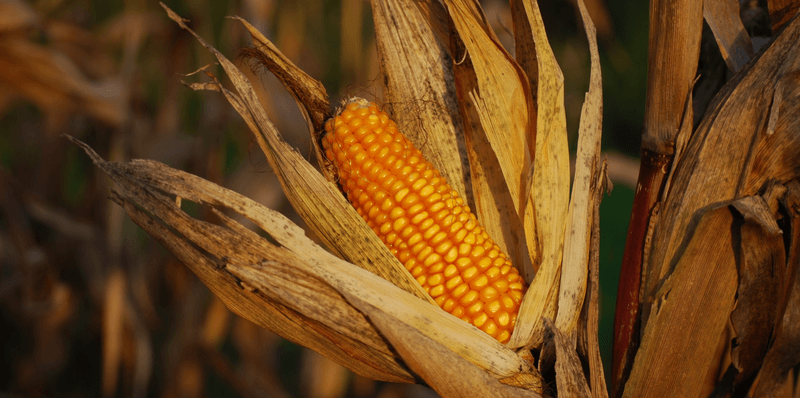Organic maltodextrin, just like its name, is artificially produced. Don’t be fooled by the term “organic.” It might sound healthier since it has the word “organic” in front of it, this is far from the truth. When you’re conscious of what is in the foods that you are consuming, you begin to become very diligent about reading every nutrition fact and ingredient list of that food before you purchase it. Unfortunately, the list of ingredients on packaged food items you can barely pronounce, leaving you to wonder what they are and are they safe to consume. One popular ingredient being used today is organic maltodextrin.
What Organic Maltodextrin Is

Organic maltodextrin, is a white powder and is often used in our everyday foods, like yogurt, sauces and salad dressings, potato chips, sports drinks, meal replacement shakes, nutrition bars and baked goods. Its main purpose is to be used as a thickener, filler or preservative in many processed foods. So, if you have consumed any of these food items, more than likely you have consumed it.
Food Compounds Organic Maltodextrin Is Made From
Organic maltodextrin is derived mainly from corn, rice and potato starch and even wheat, which can be a problem for those with a gluten intolerance or celiac disease. When processing organic maltodextrin, all proteins are removed, making its nutritional value non-existent. Unfortunately, there may still be traces of gluten in products containing organic maltodextrin, which now you can see can be dangerous for those who cannot have gluten.
Maltodextrin’s Lack Of Nutritional Value

Because organic maltodextrin does not contain any nutritional value, it can contribute to the growth of harmful bacteria in our gut. The gut is the centerfold of our immune system and if our gut is not healthy, then our immune system it not healthy and unable to function at its optimal best. Bacteria is much smarter than we give it credit for.
While your gut is growing more harmful bacteria, these bacteria are also changing the whole composition of the bacteria that already exist in our gut, thereby stopping the growth of probiotics that are good for our gut. The good bacteria are needed as they act as our soldiers, protecting our immune system. When they are not there this can lead to many other health conditions. Studies have shown a relationship between organic maltodextrin and making someone more prevalent to bacteria – associated intestinal disorders, like IBS and SIBO, autoimmune disorders and inflammatory diseases.
Possible Adverse Effects of Organic Maltodextrin

Besides suppressing the growth of good bacteria in the gut, organic maltodextrin increases blood sugar levels. For someone who is diabetic or has a glucose problem, this can make your condition worse. Remember taking a nutrition or science class and discussing the glycemic index of foods? As a refresher, the glycemic index is a ranking of how a carbohydrate will affect your glucose levels. The higher the glycemic index the faster it gets into your bloodstream and the higher it raises insulin levels.
Organic maltodextrin is not good for weight loss
Organic maltodextrin has a very high glycemic index and believe it or not it is even higher than regular table sugar! Which means that sugar would be better to consume than this artificial concoction. Crazy to think about!
It is important to keep this in mind because if someone consumes a very high glycemic index diet and they are not active, this means that the body cannot use the sugar from the carbohydrate as an energy source, which the body will store it as fat. Overtime this storage of fat will lead to weight gain. Which leads to the next terrible thing about organic maltodextrin, it causes weight gain! Nobody wants to gain weight. If one of your goals is to lose weight, make sure to double check the ingredients for organic maltodextrin before purchasing, or losing weight may be more of a challenge than you may have realized.
What Are the Alternatives?

So, what about alternatives? There are many other alternatives on the market in replacing organic maltodextrin. Some of these include stevia, dates, honey, guar gum and pectin, which all come from natural sources. Plus, you don’t have to use a translator to pronounce them. One thing to remember when reading ingredients on food labels is that if it reminds you of a chemical that you would use in chemistry class or you cannot pronounce it, then do not eat it. More than likely it is artificially made, and our bodies do not know how to process it.
Double-check your ingredients, your health will thank you!
Any Questions?
Book a virtual or in-person appointment with us today and ask about our $79 Functional Medicine New Patient Special and how Nutrition Counseling can help you!

Feb 02, 2024 at 2:17 PM
I've noticed that companies mix maltodextrin powder in with anything from tart cherry powder to papain powder. Are there any brands of papain powder that don't use maltodextrin? And why is it added?
May 03, 2024 at 4:08 AM
Why is organic maltodextrin added to good supplements? Should I use any thing with maltodextrin in it? I received Organic Turmeric Complex Powder with maltodextrin added to it.
May 08, 2024 at 9:58 AM
Hello Rachel, Great question! Maltodextrin is added to supplements to help with recovery, but is safe for most individuals. Maltodextrin is not recommended for those who have diabetes, as it does cause spikes in glucose levels as it contains high glycemic index.